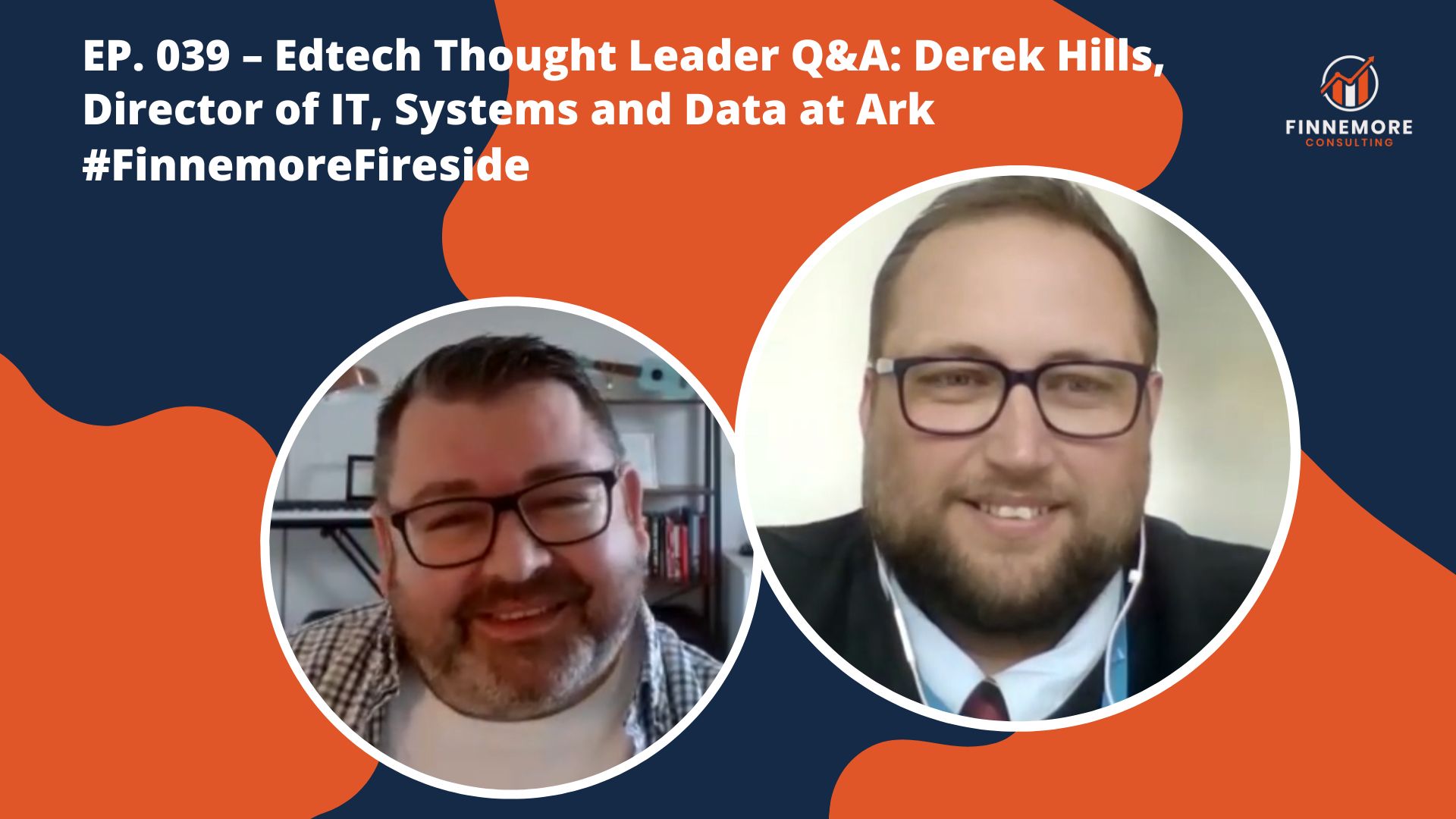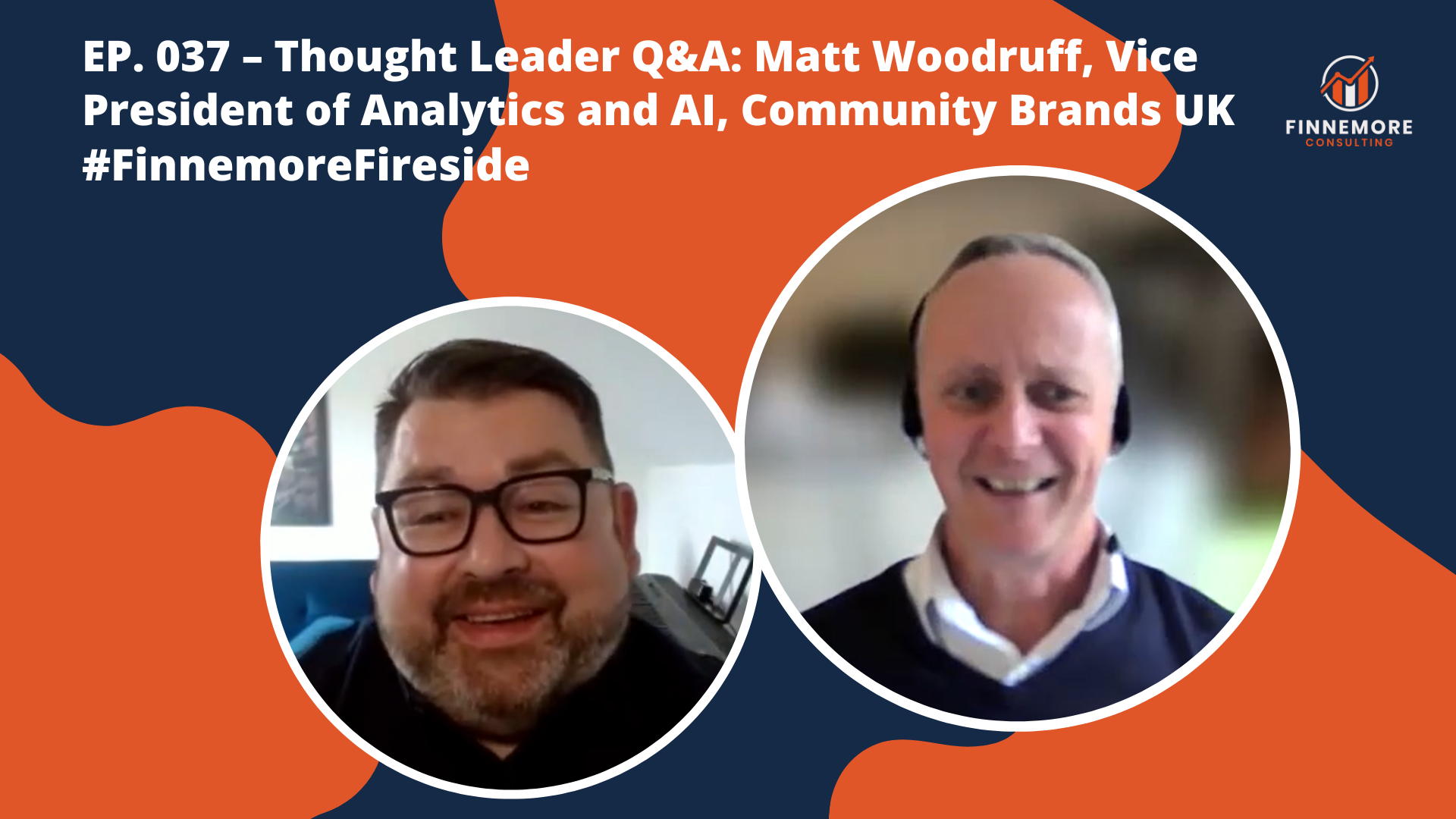We’re kicking off the summer term with our next #FinnemoreFireside, this time with Derek Hills, Director of IT, Systems and Data at Ark, a charity and network of 39 schools that aims to transform children’s lives through education.
Derek has a wealth of experience leading first-class Data and IT teams, having previously worked with other MATs including Harris Federation and David Ross Education Trust before taking up his role at Ark. He knows the MIS landscape well and we had an interesting chat about what the future of MIS might be, including topics such as:
- Where does Derek’s passion for data and analytics come from, and why does he love working in education?
- What can be achieved by sharing data, info and best practice
- Where he sees AI fitting into technology budgets and the broader education landscape
- Are schools getting enough out of their edtech and systems, and are they utilising it effectively?
- Consolidating solutions means investment can go into teaching, but what are the challenges around open data policies?
- The importance of working in partnership with suppliers and forming long-lasting relationships
- What Derek would like to see more of from edtech companies





